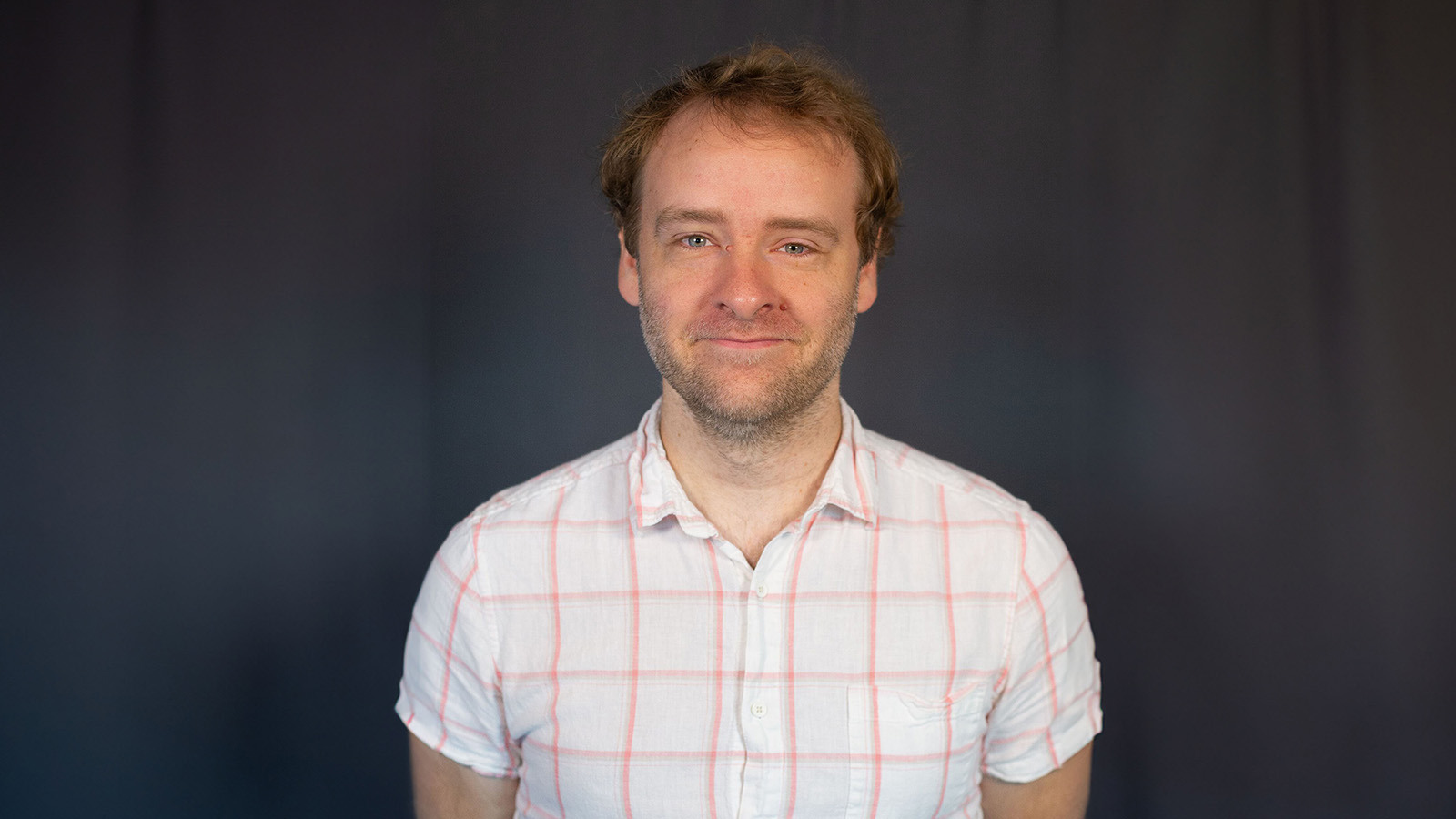Full Sail Stories
Published Apr 08, 2025
This Film Grad Edits Videos for a Medical Nonprofit
As the Senior Video Editor in Mercy Ships’ branding department, Paul Ellison helps tell ethical, holistic stories about the nonprofit’s patients and volunteers.

Paul Ellison’s documentary filmmaking background comes in pretty handy when he’s editing videos for Mercy Ships, a nonprofit organization that uses fully equipped hospital ships to deliver free surgeries to underserved communities in Africa. As a Senior Video Editor in Mercy Ships’ branding department, Paul helps tell impactful stories about the organization’s patients and volunteers. He’s using his past experience editing for reality television and documentary films to bring a positive message to people across the globe.
Paul’s first video editing job was for a nonprofit based in Liberia that helped orphans. He took a detour to enroll in Full Sail’s Film program to hone his editing skills, then quickly found an internship at video production company AMS Pictures.
Over the next 10 years, Paul worked his way up from intern to Lead Editor. He contributed to a number of reality shows that appeared on HGTV and Discovery, plus true-crime documentaries and feature-length celebrity bio documentaries that aired on Reelz. His favorite project was Karen Carpenter: Starving for Perfection, which focused on the musician’s life and tragic death.
“I got to go to a couple of the film festivals [where the Karen Carpenter documentary was shown] and it was rewarding to hear people talk about the film and how they related to it, like ‘Oh, my daughter's dealing with [an eating disorder], or ‘I see this as a really great opportunity to speak to teenagers about their self-image.’ We kind of get into all of that in the doc. I enjoyed the positive message behind it,” he shares.
Paul eventually transitioned back to the nonprofit world when he started working in Mercy Ships’ branding department. His experience creating a narrative from documentary footage and working on longer stories paved the way for him to create shorter videos to spread the word about Mercy.
“The documentaries I worked on at AMS were usually 45 minutes to two hours long,” he says. “And at Mercy, it's little three-to-five-minute mini-docs about our patients or about our volunteers. We’re still telling stories, and we have ethical storytelling guidelines that we're following because we're working with real people. But of course, it's all wrapped up in a campaign or branding; there's some motivation behind it that you're either trying to raise awareness, raise funds, or recruit volunteers.”
On a daily basis, Paul works closely with the members of Mercy’s communications team, who are located on the organization’s ships in Sierra Leone and Madagascar. The team’s videographers, writers, photographers, and communications director go out and talk to patients and volunteers to find potential stories, then send those ideas to Paul and his team in Texas. Story ideas might be accepted or rejected based on the needs of Mercy Ships’ 16 national offices around the world.
“The national offices are the ones that are sending us requests saying, ‘Hey, we want to do a fundraiser to raise this money for this project, or to raise money for the ship.’ Or, ‘We're trying to recruit volunteers, can you send us this footage or can you edit this little video piece together?’ So I'm assigned [to organize and edit footage] for those different videos.”
Paul enjoys spreading positivity and hope with the projects he works on at Mercy. His favorite videos to edit are the organization’s patient stories, which Mercy takes care to tell in an ethical way.
“Our goal in branding and in our department is to share a holistic story that humanizes the patients and shows that Africa is not just this dark continent that needs our help,” Paul explains. “We're very much trying to fight the history of Western civilization coming in to help [and then leaving]. We don't just come in, provide free surgeries, and leave. We also train local healthcare providers and work very closely with the government of that country to rebuild or build their healthcare infrastructure. So we'll do a lot of training with local surgeons and we'll bring other surgeons in from other African countries.”
One of the holistic stories that Paul helped edit was about a Kenyan surgeon who Mercy brought to Senegal to help train Senegalese doctors in surgeries that are specific to women’s health. “That was a great example of not just bringing in a doctor from the west or from Europe or from the United States, but bringing in a doctor that was from one African country to help out another African country,” he says.
Paul is in his element at Mercy, but his career journey is far from over. He has a keen interest in narrative filmmaking, and he’d love to branch out and explore editing for feature-length films. He’s also got advice for up-and-coming film editors: Focus on finding an internship.
“Anybody can [go online and learn to] edit now; what's going to set you apart is, are you able to organize your footage in a way that somebody can come in after you and work successfully? Can you work well in a team? Can you fit easily into different parts of the process as an editor to jump into a post-production house?... You'll be able to get a job a lot quicker if you understand the processes of basic, clean footage organization. If you can get an internship, you’ll learn that very quickly.”



